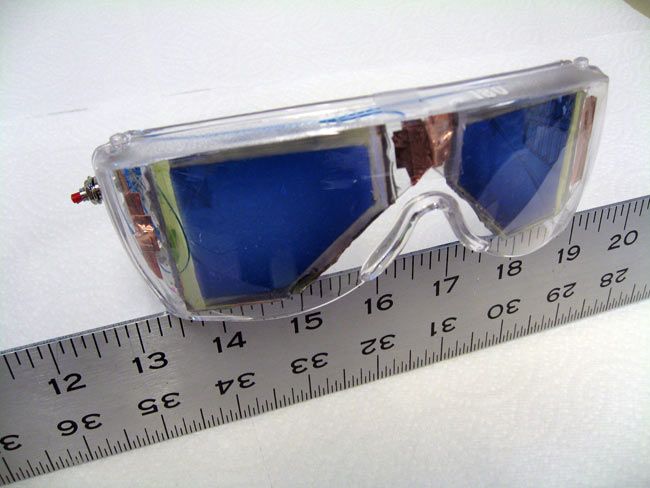Smart Sunglasses Change Color on Demand

CHICAGO—Smart new sunglasses could instantly change into virtually any color on demand with just a turn of a tiny electronic knob on their frames.
"We’ve developed lenses that aren't like anything else on the market," said researcher Chunye Xu, a chemical engineer at the University of Washington at Seattle. "This could be the fashion statement of the future."
The lenses that the researchers have developed are made of a kind of electrochromic polymer, a material that can alter its levels of darkness and color in response to an electric current. The glasses only require power when they change hue.
So far Xu and her colleagues have developed prototype shades that resemble a pair of lab goggles with a dial attached onto the frame. Turning this dial activates the tiny watch battery powering the goggles and dials up the desired color. A single watch battery can power thousands of changes, Xu said. The researchers presented their findings Tuesday at the American Chemical Society annual meeting.
In the lab, the researchers have shown their glasses can quickly switch from transparent to blue, plus various shades in between, at the flip of a switch, requiring minimal energy consumption. "We are working on a multicolored device as well, but no prototype is available yet," Xu said.
The chemists have also created red and green electrochromic polymers, but currently they are not yet as stable as the scientists would like, University of Washington materials scientist Minoru Taya told LiveScience. By combining polymers of different colors into multiple layers, virtually any hue of the rainbow should be possible in the lenses.
Ultimately, smart sunglasses could be produced to resemble the size and shape of regular shades for about the same cost, Xu said. Like regular sunglasses, smart ones could be coated with protective layers to screen out damaging ultraviolet light. Still, these kinds of sunglasses won't be available to consumers for another two or three years, as more testing is needed, Xu said.
Sign up for the Live Science daily newsletter now
Get the world’s most fascinating discoveries delivered straight to your inbox.
- Video: Smart Sunglasses
- How the Human Eye Works
- Vision Gear Bypasses the Eye












